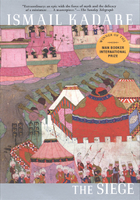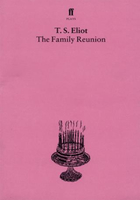The Emperor of the Romans and the Great King of the Persians are ancient enemies; yet they think of themselves, together, as the twin eyes of the world and as the joint light-houses of civilization. Each finds the existence of the other a comfort to him in the loneliness of his sacred office, and there is a note of comradeship which constantly recurs in the royal letters that they exchange-in time of war no less than in time of peace. They greet each other like two veteran backgammon players who play together in the wine-shop every day for the price of the day's drinks. One eye, or one light-house, shines over a great part of Europe, and over Asia Minor, and part of Africa; the other, over immense territories in Greater Asia. It is true that in both cases the sovereignty exercised over many regions is only titular. The Persian cannot control such distant satrapies as Bactria and Sogdiana and Arachosia; and the Roman, at the time of which I am writing, had in all but title lost Britain to the Picts and Saxons, Gaul to the Franks and Burgundians, North Africa to the Vandals and Moors, Spain to one nation of Goths, and Italy, with Rome itself, to the other. Nevertheless, the true control of a large part of the world remained, and remains, in the power of one or the other, and so also does the nominal control of another large part.
Fortunately for world peace, there are deserts of sand and great rocky uplands intervening between the two realms for practically the entire length of their common frontier-which runs from the eastern end of the Black Sea through Armenia and behind Syria and Palestine to the northern end of the Red Sea. Seldom in the history of the world have Western armies succeeded in conquering parts of Asia beyond these boundaries, or Eastern armies overflowed into Europe or Africa. Even when this has happened the invasion has not been lasting. Xerxes the Persian failed to conquer Greece, despite the immense armies he brought over into Europe by his bridge of boats across the Hellespont; Alexander the Greek conquered Persia, but his swollen Empire did not survive his death. More usually the invaders from either side have been defeated close to the frontier; or, if successful, have not attempted to retain the territories occupied, but have retired home after exacting tribute in some form or other. Such conflicts have almost all taken place in Mesopotamia, in the region between the upper waters of Euphrates and Tigris. This is the most convenient campaigning ground-which, however, favours the Persians in the matter of ready access to food depots and garrison towns.
For several centuries after the time of Alexander, the Persian Empire was known as the Parthian because the Arsacids, the ruling dynasty, were of Parthian origin; but, about a hundred years before Constantine turned Christian and transferred the capital of the Empire from Rome to Constantinople, a descendant of the old Persian Kings, by name Artaxerxes, had revolted and overthrown the Arsacids. His new dynasty, the Sassanids, restored the Persian name and tradition to the Empire and has maintained itself in power ever since. (At the time of which I write, Kobad, the nineteenth of the line, wore the regal diadem.) The Sassanids had purified and strengthened the ancient religion of the Persians, which is the worship of fire according to the revelation of the Prophet and Mage Zoroaster. This religion had been much corrupted by Greek philosophy-as the ancient Roman and Jewish religions had also been, and the Christian religion too. (Compare the fine, simple story contained in the four Gospels, obviously born among illiterate peasants and fishermen who had never studied either grammar or rhetoric, with the wearisome philosophic Christianity of our time!) But King Artaxerxes banished all the philosophers from his realm. They returned to us with Persian notions and inflicted on Christianity a new heresy, the Manichean. These Manichees have hit upon a totally original theory of the nature of Christ. They hold that it was dual, and not only dual but contradictory: Jesus, the historical man, being imperfect and a sinner, and Christ, his spiritual counterpart, being a Divine Deliverer. Manichees are hated both in Persia and Christendom, and I have not a word to say in their defence. The Persians encourage them only in Persian Armenia, in order to weaken the bonds of religious sympathy between that country, which is Christian, and Roman Armenia, which is Christian too and rigidly Orthodox.
By forbidding talk of an unnecessary sort-this is all that philosophy appears to be to a practical person like me-and ordering a return to a primitive directness of action, speech, and thought, Artaxerxes restored the native power of the Persians alike in the civil and military sides of government. Great wars were waged between his descendants and successive Roman Emperors, in which, on the whole, the Persians had the advantage. But the fourteenth of the line was Bahram the Hunter, so called because he had a passion for hunting the wild ass of the desert. He became involved in a war with us because he persecuted Christians as fanatically almost as we persecute our fellow-Christians; and was conquered in battle and forced to pledge his royal honour to keep the peace for a hundred years. His sons and grandsons, for fear of provoking the anger of his ghost, kept the peace strictly, and the hundred years did not expire until modern times. Then, as I have already mentioned, war broke out again, and Anastasius's army, disgracefully led, was disgracefully defeated. This was the campaign which the burgess Simeon had witnessed.
The quarrel had several causes, but the chief of these was the wholesale price of silk. Silk is a material for clothes that is far superior in coolness, lightness, and handsome appearance to any other known. It was invented by a primitive Chinese queen, and for centuries it has been imported from China by sea and land for the use of rich and well-bred people and for dancing girls and prostitutes and such; and from a rare luxury it has become a common vanity. Silk takes dye readily, especially the purple dye of the shell-fish. Cotton is another useful importation from the East, principally from India; it is the fibrous flower of a marshy shrub, and can be woven into a light, tough cloth, cooler than woollens and easy to wash. However, cotton has not the glossiness or fineness of silk. There was never any mystery about cotton; but what the nature and origin of silk was nobody but the Chinese themselves knew, and they would not reveal the secret, because they wished to preserve their most valuable monopoly. Raw silk came to us in yellowish skeins wound on grass-stalks, each skein containing a certain weight of thread. Natural historians guessed that it was the thread of a gigantic Chinese spider, but others believed that it was fibre drawn from the bark of a certain palm-tree, and still others that it was made from the scrapings of the furry undersides of mulberry leaves. However, nobody could prove his own view to be the correct one, because our relations with China have always been maintained through middlemen-except for a short period 400 years ago when our ships sailed directly into the ports of Southern China. We have dealt either with the Persian merchant colony in Ceylon, by the sea-route, or with Persia itself, by the land-route. The silk caravans from China take 150 days to reach the Persian frontier by way of Bokhara and Samarkand, and another eighty to reach our frontier by way of Nisibis on the upper Euphrates; from thence a journey of twenty days brings the silk to Constantinople. The sea-voyage is perhaps less hazardous, but the silk must go through the hands of the Abyssinian traders of the Red Sea, and thus pay a double toll.
As the demand increased, the Chinese merchants raised the price of raw silk; and the Persians, unwilling that the Chinese should be the only ones to profit, increased the re-sale price more than was equable. Then our merchants, unable to make any profit by buying at this rate, decided to deal direct with the Chinese, if possible, by reopening an old trade-route passing to the north of the Persian territories, beyond the Caspian Sea: this long but practical route entered our territory through a narrow pass of the Caucasus mountains, to the east of the Black Sea and at the boundary of Colchis, a rich land friendly to us. It was to Colchis that Jason of old went in company with the Argonauts to fetch back the Golden Fleece; which was, I think, a parable of Eastern riches brought by this northern route. In deciding to reopen it, our merchants were aware that they must pay toll to the savage Huns through whose territory it passed, but hoped that they would be satisfied with less money than the Persians. The nearest and most powerful of these tribes were the White Huns, so called because they were European in appearance, unlike the other Huns, who seem to us a sort of evil yellow animal. They lived between the Caspian and the Black Seas and were inveterate enemies of the Persians. A timely gift to these White Huns to persuade them to attack Persia from the north had more than once saved our frontiers from serious invasion.
But the merchants' plan failed. The Persians heard of it and persuaded the Chinese to deal only with themselves. Then King Kobad wrote sarcastically to the Emperor Anastasius that the White Huns had now made him responsible for the toll that the Romans had promised to pay them for the use of the northern route. If Anastasius still wished to buy silk, he must therefore first lend the Persian Government money with which to appease the disappointed Huns. Anastasius, of course, refused this demand with indignation, so Kobad invaded Roman Armenia with a small but well-trained army, besieging the important city of Amida on the Upper Tigris. Anastasius despatched an army of 52,000 men to its relief, entrusting its command, however, not to a single worthless general, as was customary, but to several worthless generals of equal rank-who constantly opposed one another's plans and could not agree on any single point. This huge force was therefore beaten, division by division, in several pitched engagements; and some parts of it fled without daring to come to grips at all. Our name thus won such discredit in the East that had Kobad not been distracted by a Hunnish invasion from the north-Anastasius had bought the services of the White Huns by paying the promised toll twice over-he would doubtless have attempted to overrun all Syria and Asia Minor, and doubtless would have succeeded. He had already taken Amida after a long siege, owing to the negligence of certain Armenian monks, supposed to be on sentry duty at one of the towers, who had eaten and drunk too generously after a long fast and fallen asleep: the Persians crept into this tower by an old underground passage that they had discovered and slaughtered the monks, every one. At the assault Kobad himself showed great energy for a man of sixty years. Mounting a scaling-ladder, sword in hand, he threatened to run any Persian through who turned back. It is said that the Persian Mages had dissuaded him from raising the siege, as he had intended to do when it grew wearisome, because of a sign: a group of prostitutes on the walls had taunted the Persians by lifting up their skirts at them, exclaiming, 'Come in and enjoy yourselves.' The Mages interpreted this as a sign that the city would soon reveal her secrets to them; and the discovery of the hidden passage proved them right. Kobad, returning to give battle to the White Huns, left a garrison of a thousand men behind at Amida, who succeeded in holding the city against the Roman relief-force and only consented to evacuate it, two years after its capture, on payment of 70,000 gold pieces.
Peace was concluded for seven years between Anastasius and Kobad, but continued much longer, because Anastasius was too weak and Kobad too preoccupied to continue the struggle. But two hostile acts were committed, one by each side. Kobad seized the Caspian Gates, the pass through the Caucasus through which our caravans were to have gone in search of silk; and Anastasius fortified the open city of Daras, close to the Persian frontier and commanding the main road joining the two countries.
To give an explanation of what these acts signified. The Caspian Gates are of great strategical importance. They are the only practical pass through the lofty and terrible Caucasus range, which acts as a barrier for many hundreds of miles between the broad Asiatic steppes, where the nomad Huns roam, and our civilized world. Alexander the Great had been the first to appreciate fully the importance of this pass, which is seven miles long and begins, at the end nearest to us, with a natural door, set in precipitous cliffs, that can be defended by a small garrison. He built a castle there, and it has been held by many different princes in the last eight or nine hundred years. The present constable was a Christianized Hun, whose grazing-lands on this side of the mountain the castle protected against the heathen Huns on the other.
This constable felt death approaching and, being able to place little reliance on the good sense or courage of his sons, wrote to Anastasius, who had shown him many marks of favour, and offered to sell him the castle and the pass for a few thousand gold pieces. Anastasius called his principal Senators together and asked them for their opinion on the matter, which they gave as follows: 'The Caspian Gates would have been of great commercial importance to Your Sacred Majesty, had you been able to use the northern caravan-route for direct trade with China; but as this has been denied you by Persian intrigue there is no profit to be derived from them. Your Majesty will realize that the present constable, or his sons, will continue to hold the fortress without any inducement from you, merely to restrain raiders from the steppes from overrunning their own country. Moreover, to post a Roman garrison there would be both dangerous and expensive: for the Caspian Gates are situated two hundred miles beyond the eastern end of the Black Sea, and more than that distance from the Diocese of Pontus, which is the nearest of Your Clemency's personal dominions on the southern shores of that Sea: the Persian satrapy of Iberia lies between. We therefore advise Your Greatness to thank this Hun most courteously and to send him a worthy gift, but not to throw good money after bad; the Eastern frontier has already cost the Empire too dear.'
Anastasius unwisely took their advice. The constable died shortly afterwards, and the sons quarrelled over his will. Then the youngest of them, who was robbed of his inheritance, wrote to Kobad suggesting that a strong Persian force should seize the Gates, and that he himself should be appointed constable with a large yearly salary. Kobad sent the force, seized the Gates, killed all the sons, including the youngest one, and congratulated himself that his extreme Western dominions were now secure from attack by the Huns. If Anastasius had only had the courage to garrison the Gates, he could, whenever he pleased, have let loose swarms of raiders on the Persian part of Armenia, as easily as a gardener removes a stop from a garden reservoir and floods the irrigation channels.
So much for the Caspian Gates. As for Anastasius's fortification of Daras: it was forbidden by ancient treaty for either side to build any new fortifications on the frontier. The Persians greatly resented his action, but Anastasius further fortified the village of Erzeroum in Roman Armenia, and made a strong city of it. This, too, the Persians took very ill, and also his intriguing with the Manichean monks in Persian Armenia, pretending to be a secret convert to their sect.
When Anastasius died, and Justin succeeded, Kobad grew anxious about the future. He knew Justin for a capable soldier and he felt his own death approaching. Like so many Eastern Kings, he hated his natural heir, whose name was Khaous. He doted on his youngest son Khosrou, the child of his second wife who by her self-sacrifice had once enabled him to escape from the so-called Castle of Oblivion, where he had been confined for two years by a usurper. She had changed clothes and places with him, and when the deception was discovered had been put to death by very cruel tortures. Kobad had sworn to her before he escaped that if ever he recovered his throne her son should be his successor. Besides Khaous, there was another son, Jamaspes, who was the most capable soldier in all Persia and had the confidence of the entire nobility; but he was not eligible for the throne because he had lost an eye in a battle with the Huns. No man with any deformity or mutilation is permitted to rule in Persia, and it is a peculiarity of Persian laws that they may never be cancelled or amended. Kobad pondered for years as to how he could set aside Khaous, who was loyally supported by his brother Jamaspes; but could hit on no answer to the problem. It was only when Anastasius died and Justin became Emperor that he decided on a course of action. He wrote Justin a strange letter, accompanying it with some very handsome presents of jewels and works of art. I quote it here with a few immaterial omissions.
***
'Kobad of the Sassanids, Brother of the Sun, Great King of the Persians, Acknowledged Emperor of Media, Iraq, Transjordania, Hither Arabia, Persarmenia, Kirman, Khorasan, Mekran, Oman, Sind, Sogdiana, and other lands too numerous conveniently to name in the course of this short letter, to Justin the Christian Emperor of the Romans, resident at Constantinople, sends greeting.
'Royal cousin, at the hand of your father Anastasius we have suffered great injustices, as you in your well-known nobility of soul will be among the first to acknowledge. Nevertheless, we have seen fit to abandon all the grave charges that we could bring against the Romans, confident that in your Royal Father's lifetime you deplored as much as ourself his unreasonable actions, though in filial piety you refrained from mitigating their effects. And we are assured that true victory lies with him who, though knowing himself to have been abused, is yet ready to be overcome by his enemies when they plead for friendship with him. Such is the proposed magnanimity of Kobad, and he is willing to bind himself to Justin with the closest possible ties of friendship.
'Our royal cousin cannot be unaware of a notable transaction that took effect between his ancestor the Emperor Arcadius, and mine, the great Yesdijerd, self-surnamed (in his great humility before the Sun God whom we worship) "The Sinner". This Arcadius, being grievously sick, and having no grown son, but only a child, Theodosius by name, was afraid lest this child should be cast aside from the line of succession by some powerful general or by one of his own ambitious kinsmen. He was equally afraid that his subjects would take advantage of the political uncertainty that so often marks the reign of an Emperor of tender years. He therefore boldly wrote to our ancestor Yesdijerd and begged him to act as guardian to his child until he came of age, and to preserve the throne for him against all rivals. Our noble ancestor, Sinner in name but virtuous in deed, accepted the charge and wrote to the Senate at Constantinople a letter threatening war on any usurper of the throne of Theodosius. He then preserved a policy of profound peace towards Rome until his death.
'In commemoration of this noble history, which honours Arcadius no less than our ancestor, and in hopes of another century of peace such as the Emperor Theodosius subsequently swore with our ancestor Bahram the Hunter, and which terminated only lately, we have the following proposal to make: that you, Justin, make our beloved son Khosrou, who is our chosen successor to the Throne, your adopted son. Do this and we shall love you, and our subjects shall love yours, and the Great King and Emperor of the Romans shall no longer be cousins, but brothers. Farewell.'
***
You would imagine that Justin, and Justinian as his prospective successor, would have been delighted with this letter as portending a happy solution to all their difficulties, including even the old dispute about the price of silk; and you would not be wrong. None the less, they thought it advisable to call the principal Senators together to ask their advice, as Anastasius had done in the matter of the Caspian Gates. It is well known what happens on such occasions. The simplest and most obvious conclusion is rejected as unworthy of such experts in wisdom as these ingenious hoary old men, and an obscure alternative is warmly debated and then rejected; finally, a most far-fetched and marvellously improper conclusion is found and unanimously accepted. There is a popular story which has aptness in this context. Once two clever Athenian policemen were pursuing a Theban thief towards the city boundaries when they came upon a sign: 'The Sign of the Grape. Thebans made welcome.' One said: 'He will have taken refuge here.' 'No,' cried the other, 'this is just the place where he will expect us to look for him.' 'Exactly,' rejoined the first, 'so he will have decided to outwit us by entering.' They therefore searched the place thoroughly. Meanwhile the Theban thief, who could not read, had run on to safety across the boundary. Thus now the clever Senate argued about Kobad. Was he being simple, or cunning, or mischievous? Or what besides?
All sorts of views were examined, and finally the Lord Chancellor, as an expert on law, gave it as his mature opinion that Kobad was hiding extreme cunning under the guise of extreme simplicity: he intended to have Khosrou adopted as Justin's son so that he could legally claim the Empire when Justin died! Any ordinary person-but no ordinary person was present-would have realized at once the absurdity of this argument. In the first place, the Persians are a truthful people, and the Great King would not be capable of lowering his royal dignity by such a pettifogging trick; in the second, no Persian had the least prospect of being accepted by us as a candidate for the Roman Throne, not even if he allowed himself to be baptized a Christian, which would, of course, cut him off from communion with his fellow fire-worshippers. The fact was, that Kobad was making a sincere and neighbourly offer (light-house signalling to light-house), just as Arcadius had once done. But the Lord Chancellor's view frightened Justinian, who wished to have no rivals to the succession; and even Theodora, who judged the letter to be what it purported to be, could not persuade him to return to a sensible view of the matter. So Justin was obliged to return an inept answer to Kobad, in which he offered to adopt Khosrou by the ceremony of arms, but not by Imperial charter. The former method of adoption is used chiefly among the Goths. The prospective father presents a horse and a complete suit of armour to the prospective son and utters the simple formula: 'You are my excellent Son. This day, after the custom of the Nations and in manly fashion, I have begotten you. Let my foes be your foes; my friends, your friends; my kin, your kin.' The difference between this formula and civil adoption, by charter, is that it is not recognized by Roman Law as conferring on the son any title to the patrimony, but only as a contract of legal protection on the one hand and filial obedience on the other.
Before calling the Council, Justinian had privately assured the Persian ambassador that the Emperor would, he thought, accept the charge with alacrity; and the ambassador had thereupon sent a message to Khosrou to be ready at the frontier, whence he would shortly be escorted to Constantinople for the adoption ceremony. But now, of course, things were altered. Khosrou felt bitterly insulted at the shabby reply which a Roman ambassador brought to his representative at Nisibis on the frontier. A simple 'no' would have been far less galling than a 'no' masquerading as a 'yes'. Did Justin really expect that the ruler of the oldest and greatest kingdom in the civilized world would allow his favourite son, his chosen successor, a prince with the blood of Artaxerxes and Cyrus in his veins, to be treated like a barbarian German man-at-arms? War broke out soon afterwards; and in it Belisarius was given his first important command.
Before giving an account of his exploits, I must tell you a little more about my mistress and myself at Antioch. One day at noon-it was the twenty-ninth day of May-in the year that this new Persian war broke out, we were sitting in the garden porch of the house, waiting for luncheon to be announced. It was a cool place, beautifully tiled in blue, with a perpetually playing fountain and a white marble pool, full of vari-coloured fish, surrounded by pots of flowers, some of them very rare ones imported from the Far East. My mistress sleepily held a piece of needlework in her hand, unable to sew because of the oppressiveness of the day; I, too, was painfully slack-limbed and slack-minded. Suddenly I began to feel sick. The whole earth seemed to heave and rock about me. I was terrified: was it the cholera? Would I die within a few hours? Cholera was raging in the poorer quarters of the city, killing 5,000 a day. Not far off stood a magnificent temple in the Corinthian style that had once been dedicated to the Goddess Diana (who is also the Syrian Goddess Astarte), but had now been used for a hundred years or more as the official headquarters of the Blue faction. Looking out through the porch, I tried to steady my gaze on the broad peristyle of this substantial building and its columns of yellow Numidian marble ranked in tall rows. But these, too, were swaying about in a drunken manner, and at a particularly violent lurch they all seemed to topple sideways-and down came the peristyle with a rumble and a resounding crash! I realized suddenly that it was not myself who was sick, but our mother the Earth! What I was experiencing was an earthquake of immense and horrible violence. I snatched up my mistress's boy Photius and her little Martha, who had been playing on the floor near me, and ran out into the garden, my mistress stumbling after me. We were only just in time: a still more violent heaving of the earth flung us all to the ground, and with a roar our beautiful, costly, comfortable house collapsed into a confused mass of rubble and broken timber. Some flying object struck my head and I found myself automatically making swimming motions with my arms, as if I had been flung into the sea from a wrecked ship and was being overwhelmed by hugely swelling waves. Indeed, at that very moment, though I did not know it, many thousands of my fellow-citizens were swimming too, and in desperate earnest. For the great River Orontes, swollen with its spring flood, had been driven out of its course by the convulsions of the earth; and now swept through the lower city to a height of twenty feet, carrying all before it.
When my head cleared a little, I caught at my mistress's hand and we ran back to where the house had been, frantically calling the names of the two elder children, and the names of their tutor and of the other domestics. But all were buried under the dusty ruins, except for two gardeners, and a footman who had rushed out of the back door when the first shock was felt, and one badly injured maid. We tried to free someone who was groaning close to us in the ruins-I think that it was my mistress's sister-in-law-but a sudden wind blew up, and a fire spread through the shattered mass, making rescue-work impossible. Once I thought I heard my mistress's elder boy screaming; but when I went to the spot I could hear nothing. After this the shocks gradually diminished in violence. A few hours later we were able to reckon up the day's horrors.
Antioch, the second city of the Eastern Empire (though Alexandria and Corinth and Jerusalem boldly disputed the title), lay in ruins. Of those who survived of its three-quarters of a million inhabitants, all but a few thousand were homeless; for a raging fire had destroyed the wooden houses that the earthquake had spared. Not a church or a public building was left undamaged. Immensely deep, long chasms had appeared in the earth, engulfing whole streets of houses. The most fantastic damage was in the Ostracine and Nymphaean quarters, but the greatest loss of life was at the Public Baths (named after Hadrian and Trajan) which were crowded at the time of the first shock.
The usual evils that accompany an earthquake of such magnitude were not lacking: pillage, rioting, contamination of the water supply, the spread of infectious diseases among the inhabitants (the cholera with increased force), and bitter religious argument as to the cause of the disaster. Fortunately we had an able governor who kept the confidence of the better elements among the survivors. He organized parties for releasing victims trapped in the ruins, for fighting the fires, for burying the dead, for building temporary shelters, and for the collection and distribution of food. If it had not been for him our situation would have been desperate indeed.
My mistress's husband had been caught in the collapse of the Temple of Diana, and his body was never identified; but we were able to recover a large sum in gold from the cellars of the house, and his will was safe in the crypt of a church at Seleucia, under the charge of priests, and the store-building in which he kept his bales of silk had neither collapsed nor been burned. The villa in the Lebanon would be unaffected by the disaster. It might all have been much worse, we decided. Of my mistress's four children she still had two. She suffered the usual mother's pangs for the two that she had lost, telling herself that they were her favourites and the most beautiful and gifted of the four; but whether this was really the case I do not know. It is true that Photius did not prove a good son to her, but I preferred him to his brother who died.
When Justin was informed of the disaster, which had involved not only Antioch but the great city of Edessa on the road to Persia, and Anazarba, and Pompeiopolis, and, in the West, Durazzo and Corinth, all principal cities, he was overcome with grief. He took off the diadem from his head and put on a grey mourning cloak, and offered sacrifices at a shrine outside the City walls, and refrained from washing or shaving for a whole month. He also closed the theatres and the Hippodrome by decree for the same length of time. He contributed 2,000,000 gold pieces to the rebuilding of Antioch and proportionately to the other cities; he also remitted their taxes for a number of years. The loss in Imperial revenue was staggering.
As for my mistress, Antonina: she waited for two years at Antioch until conditions there had improved sufficiently to restore land values to a reasonable level. Then she sold all the property that she had inherited from her husband, and returned to Constantinople, with her two children, accompanied by myself. She bought a small house in the suburb of Blachernae, overlooking the waters of the Golden Horn, and did not announce her presence in the City to Theodora or any other of her former associates, preferring to live in seclusion.
Shortly after our arrival, Justinian became Emperor in succession to Justin. Theodora was already his wife, for his old aunt had died and he had persuaded Justin to repeal the law forbidding patricians to marry women who had been stage-actresses.
So my mistress's former club-mate now wore the Empress's crown of gold heightened with sprays of jewels, and strings of pearls over her shoulders, and a purple silk mantle, and a red gold-brocaded skirt, and golden slippers, and green stockings. My mistress thought it better to let Theodora seek her out, if she wished, than wait upon Theodora herself. For all we knew, she might wish to forget or destroy all evidence of her former life.
My mistress eagerly followed the news of the Persian War, and came to take a secret pride in Belisarius's achievements. He and another young commander named Sittas had raided Persian Armenia and carried away a number of prisoners. This was the only success that the Romans could show in the war, which so far had gone badly for us. The Iberian subjects of the Persians, who were Christians, had revolted from Kobad because he had tried to force Persian burial customs on them. The Christians dig graves and the pagans practise cremation, but the Persians expose their dead, in towers, for the carrion-birds to feed upon: they regard fire and earth as elements too sacred to contaminate with corpse-flesh. Help had been sent to the Iberians from Constantinople in the form of a distinguished general, money, and a small force of friendly Huns from the borders of Colchis; but this was not enough to prevent the Persians from reconquering the Iberians.
In the mountain-range between Iberia and Colchis there are two passes, dominated by ancient forts. The men of Colchis who manned these forts made the war an excuse for sending an ambassador to Constantinople, asking to be paid for maintaining their difficult and disagreeable service; but saying that if the Emperor preferred to hold the fortresses with his own men, he was at liberty to do so. This was while Justin was still alive, though in his dotage. Justinian, who now took all the important decisions himself, was determined not to repeat the mistake that Anastasius had made over the Caspian Gates. Without calling a meeting of the Senate, he informed the ambassador that Justin would accept the second alternative. The Colchians therefore withdrew their garrisons, and Imperial troops were sent to take their place. But unlike the castle at the Caspian Gates, which was easy of access and situated in a fairly fertile region, these fortresses were in wild and barren country, and the provisions that they needed could not be brought to them even by mules-only human carriers could scale the rocks. Nothing edible grew for miles around, except for a kind of millet on which the Colchians could subsist but which our men regarded as food fit only for birds. The Colchian carriers now charged so highly for the conveyance of bread and oil and wine to the Imperial garrisons that the two commanders soon exceeded their subsistence allowance and, their soldiers refusing to touch millet-bread, were forced to withdraw to the plains. When the Persians in Iberia heard of the withdrawal, they seized the fortresses themselves and thought it worth while to feed their garrisons on the best food procurable. Justinian should have left the garrisons in the hands of the Colchians, paying them well for their services.
Another mistake on our side was a raid into enemy territory near Nisibis, undertaken by a Thracian general commanding the troops at Daras. The object of a raid, so Belisarius used to say, is to thrust as far inside enemy territory as is possible without endangering one's retreat and, while there, to do as much military damage as is possible; but one should avoid committing acts of unnecessary cruelty. A successful raid alarms the Government of the land raided and discredits it with the inhabitants: the alarm and the discredit are the measures of its success. Thus the cavalry raiders of Belisarius and Sittas, in the previous campaigning season, had swept for a hundred miles up the valley of the Arsanias, crossed the river by a bridge, which they then destroyed, and retreated slowly by the other bank-plundering systematically as they went-before the advance of a large Persian column. There were only a few hundred of them, all trained men. But this Thracian conducted his raid with a large, ill-assorted force of cavalry and infantry and made the pace of the horses conform with that of the marching men. He reached no place of importance, committed several acts of senseless cruelty, and, on the unconfirmed and inaccurate report that Persian reinforcements were marching along the road to Nisibis, turned about and hurried empty-handed back to Daras, from where he had started.
Such cowardice and foolishness cancelled the wholesome effect of the previous raid. Belisarius and Sittas were therefore ordered to ravage the Arsanias valley again; and did so. The Persians were on the alert this time, however, and soon surprised a squadron of Sittas's men, who were not only encumbered with heavy plunder but intoxicated as well. Belisarius was forced to fight a difficult rearguard action to cover their retreat, and was lucky to get the greater part of his force away intact after causing the Persians heavy losses. But he left a large herd of captured horses and a number of captured Persian notables in the hands of the enemy. It was after this raid, in which his former schoolmates distinguished themselves greatly, that Belisarius first announced his stern rule against drunkenness while on active service: death without appeal was the penalty, and death according to whatever was the most shameful method established in the drunken man's own nation-the sentence to be carried out by his fellows.
One of the first acts of Justinian on his accession was to dismiss the Thracian from his command and appoint Belisarius Governor of Daras in his stead. We heard a rumour, which troubled my mistress greatly, that Belisarius had advanced his position by becoming betrothed to Anastasia, Theodora's sister, in spite of her lost teeth and unhealthy condition; but it was untrue. It was Sittas who was the fortunate man.
One day, while the war was still in progress, the course of my mistress's fortune was again changed by the arrival at our house of two haggard and wayworn monks, the elder carrying a little basket. They had traced her whereabouts with great difficulty, having walked all the way from Antioch, where they had expected to find her. Only after many fruitless inquiries from one end of the City to the other, and much prayer, had they come upon her house. When we first looked into the basket it seemed to contain only a few freshly plucked mulberry leaves. Yet in those leaves was stored a fortune of colossal size. My mistress immediately took them to the Palace and asked for an audience with Her Resplendency, the Empress Theodora. She had put on dull-looking clothes and described herself as the pious relict of Such-and-Such, late Treasurer of the Blues at Antioch; not as Antonina of the club-house. She refused to particularize her business, but said that it was an important matter of State, and that if she announced it she would not be believed. She knew Theodora well enough to be sure that this statement would be irresistible.















